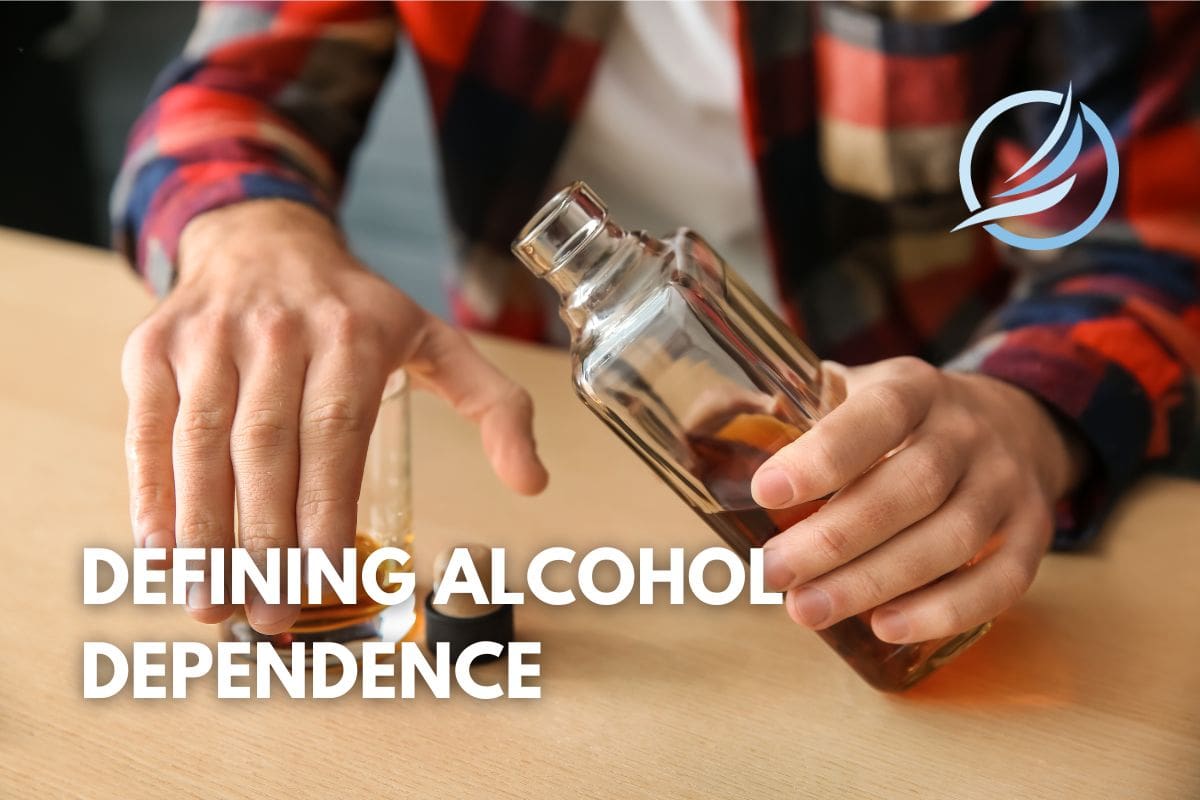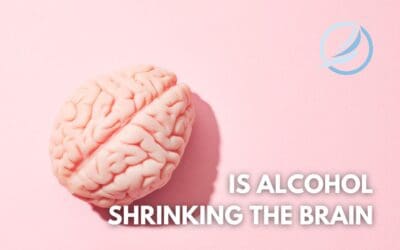Alcohol dependence is a serious condition that affects approximately 28.8 million adults in the US. Unlike occasional or social drinking, it involves an intense, often uncontrollable urge to drink alcohol despite the negative impact on one’s health, relationships, and responsibilities. Recognizing the symptoms of alcohol dependence is crucial for seeking help, whether for ourselves or our loved ones. Let’s break down everything you need to know about alcohol dependence.
What is Alcohol Dependence?
Alcohol dependence, also known as alcohol use disorder, is a chronic disease characterized by an inability to control drinking due to both a physical and emotional dependence on alcohol. It involves a persistent pattern of excessive alcohol consumption that can lead to significant health problems and impact daily functioning.
Difference between Alcohol Dependence and Alcohol Abuse
While alcohol abuse refers to harmful or hazardous drinking patterns that can lead to social, legal, or medical problems, alcohol dependence is more severe.
Alcohol dependence includes an intense craving for alcohol, loss of control over drinking, and physical withdrawal symptoms when not drinking. It’s important to distinguish between the two, as alcohol dependence often requires more intensive treatment and support to achieve recovery.
Symptoms of Alcohol Dependence
Symptoms of alcohol dependence can be categorized into physical, behavioral, and psychological signs. These symptoms may be hard to notice in oneself, as dependence habits often make them difficult to recognize.
Physical Symptoms
- Increased Tolerance to Alcohol: Over time, individuals may need to consume more alcohol to achieve the same effects.
- Withdrawal Symptoms: When not drinking, they may experience symptoms such as sweating, shaking, nausea, and anxiety.
- Physical Health Issues: Long-term alcohol dependence can lead to serious health problems like liver damage, cardiovascular issues, and a weakened immune system.
Behavioral Symptoms
- Drinking More or Longer than Intended: Despite efforts to limit alcohol intake, individuals often find themselves drinking more than they planned.
- Inability to Cut Down or Control Drinking: There is a persistent desire or unsuccessful attempts to reduce or control alcohol use.
- Neglecting Responsibilities and Activities: Important social, occupational, or recreational activities may be given up or reduced because of alcohol use.
Psychological Symptoms
- Intense Cravings for Alcohol: There is a constant urge or compulsion to drink.
- Anxiety, Depression, and Mood Swings: Emotional instability and mental health issues often accompany alcohol dependence.
- Preoccupation with Drinking: A significant amount of time is spent thinking about, obtaining, and drinking alcohol, as well as recovering from its effects.
Risk Factors for Developing Alcohol Dependence
While predicting disorder risk factors for every individual and circumstance is challenging, certain factors can help identify those at higher risk and implement preventative measures.
- Genetic Predisposition and Family History. A family history of alcohol dependence can increase the likelihood of developing the condition due to inherited genetic traits. Growing up in a household where alcohol abuse is prevalent can also contribute to developing similar behaviors.
- Psychological Factors. High levels of stress, anxiety, depression, and other mental health disorders, including those related to experiencing traumatic events, can lead to alcohol use as a coping mechanism.
- Social and Environmental Influences. Social environments with easy access to alcohol and heavy drinking encouraged or normalized can increase alcohol consumption.
- Gender Considerations. Men are generally more likely to develop alcohol dependence, with 17.1 million men affected compared to 11.7 million women. However, women who drink heavily may experience health problems sooner.
- Age. Starting to drink at a young age increases the risk of developing alcohol dependence later in life.
The Impact of Alcohol Dependence
Being dependent on alcohol means struggling to maintain a regular daily lifestyle due to the constant need to consume alcohol and the preoccupation with obtaining more. This has far-reaching effects on various aspects of an individual’s life, including health, relationships, and mental well-being.
On Health
- Short-term Effects: In the short term, excessive alcohol consumption can lead to accidents, injuries, and alcohol poisoning.
- Long-term Effects: These include liver disease, cardiovascular problems, a weakened immune system, and an increased risk of cancer.
- Increased Risk of Chronic Diseases: Chronic alcohol dependence significantly raises the likelihood of developing conditions such as hypertension, stroke, and digestive issues.
On Relationships
- Strain on Family and Social Relationships: Alcohol dependence often leads to conflicts, mistrust, and emotional pain within families and social circles. The individual may become isolated as relationships deteriorate.
- Impact on Work and Professional Life: Job performance can suffer due to absenteeism, decreased productivity, and potential job loss. Professional relationships may also be negatively affected.
On Mental Health
- Co-occurring Mental Health Disorders: Alcohol dependence frequently occurs alongside mental health issues like depression, anxiety, and bipolar disorder, complicating treatment and recovery.
- Impact on Emotional Well-being: Persistent alcohol use can lead to feelings of hopelessness, guilt, and shame, further exacerbating mental health problems.
Diagnosis and Assessment
Accurate diagnosis and assessment are critical for effectively addressing alcohol dependence. Early recognition and professional evaluation can pave the way for appropriate treatment and recovery. This is how alcohol dependence is diagnosed:
- Medical Evaluation: A healthcare provider will conduct a thorough medical assessment, including a review of the individual’s drinking history, physical health, and related symptoms.
- Psychological Assessment: Mental health professionals use standardized questionnaires and diagnostic criteria, such as those outlined in the Diagnostic and Statistical Manual of Mental Disorders (DSM-5), to identify alcohol dependence.
- Screening Tools: Tools like the Alcohol Use Disorders Identification Test (AUDIT) or the CAGE questionnaire help in identifying problematic drinking patterns and the severity of dependence.
Treatment Options for Alcohol Dependence
Effective treatment for alcohol dependence involves a combination of medical, psychological, and support strategies tailored to the individual’s needs. Here are some of the primary treatment options.
- Medical Detox: Detoxification, or detox, is the process of allowing the body to eliminate alcohol while managing withdrawal symptoms, such as anxiety, tremors, sweating, and, in severe cases, seizures. This is often done under medical supervision to provide medications, monitor the individual’s progress, ensure safety and address any complications.
- Inpatient Rehabilitation: This approach involves staying at a treatment facility where individuals receive 24/7 care and support. It is beneficial for those with severe dependence, co-occurring mental health disorders, or an unstable home environment.
- Outpatient Rehabilitation: Outpatient programs offer flexibility, allowing individuals to live at home while attending scheduled treatment sessions. This option suits those with a stable support system and a lower risk of severe withdrawal.
- Cognitive-Behavioral Therapy (CBT): CBT helps individuals identify and change negative thought patterns and behaviors related to alcohol use.
- Motivational Interviewing: This counseling approach strengthens an individual’s motivation and commitment to change.
- Other Therapies: Group therapy, family therapy, and other therapeutic modalities can also effectively support recovery.
- Medication-Assisted Treatment (MAT): MAT can be an effective component of a comprehensive treatment plan, particularly when combined with counseling and behavioral therapies. Medications like naltrexone, acamprosate, and disulfiram can help manage cravings, reduce the pleasure associated with drinking, or create adverse reactions to alcohol consumption.
The Role of Alcoholics Anonymous (AA)
Alcoholics Anonymous (AA) is a widely recognized support group that offers a structured program for individuals seeking to overcome alcohol dependence. The program is based on a 12-step approach that encourages individuals to take a series of actions, including admitting powerlessness over alcohol, making amends for past behaviors, and seeking spiritual growth.
Some benefits of AA include:
- Peer Support: Members can connect with others who have faced similar struggles.
- Structured Program: The structured nature of the 12-step program helps individuals develop a clear path to recovery.
- Ongoing Support: AA meetings are available worldwide and can be attended regularly.
- Locating Meetings: AA meetings can be found through the official AA website, local directories, or community centers. Many areas offer both in-person and online meetings.
- Getting Started: To join an AA group, individuals must attend a meeting. There is no formal registration process, and participation is typically free.
- Welcoming Atmosphere: New members are welcomed and encouraged to participate at their own pace.
Supporting a Loved One with Alcohol Dependence
Supporting someone with alcohol dependence can be challenging, but your understanding and encouragement can make a significant difference in their recovery journey. Here are some ways to offer support effectively.
- Open Communication: Approach your loved one with empathy and without judgment. Express your concerns in a caring and supportive manner, emphasizing your desire to help.
- Avoiding Enabling: While it’s essential to offer support, avoid behaviors that enable their drinking, such as making excuses for them or covering up their actions.
- Encouraging Treatment: Gently encourage them to seek professional help and offer to assist them in finding resources or accompanying them to appointments.
- Support Groups: Groups like Al-Anon and Alateen provide support for families and friends of individuals struggling with alcohol dependence. These groups offer a space to share experiences and learn coping strategies.
- Professional Guidance: Consulting with a therapist or counselor who specializes in addiction can help you navigate the complexities of supporting someone with alcohol dependence.
- Positive Reinforcement: Celebrate small victories and progress, no matter how minor they may seem. Positive reinforcement can boost their motivation and commitment to recovery.
- Being Patient and Understanding: Recovery is a long-term process with potential setbacks. Be patient and continue to offer your support, understanding that relapses can occur and are part of the journey toward sobriety.
If you or someone you know is facing alcohol dependence, remember that help is available. Seeking professional assistance and utilizing resources designed for recovery can lead to a healthier, more fulfilling life. At The Freedom Center, we are committed to providing personalized treatment plans and compassionate care to help individuals achieve long-term sobriety.


































